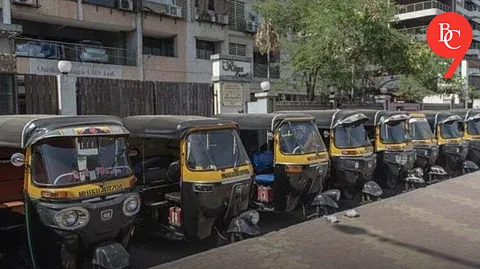

Pune commuters are facing a growing dilemma when it comes to auto-rickshaw fares. With ride-sharing apps like Uber, Ola, and Rapido now mandating meter-based pricing instead of app-calculated fares, passengers are left wondering whether convenience or cost should dictate their travel choices. This shift has sparked a heated debate over transparency, affordability, and the future of app-based auto services in the city.
Starting April 1, 2025, auto-rickshaws booked through Uber and other apps in Pune have transitioned to government-approved meter fares. This change follows a new agreement signed earlier this year, redefining Uber’s role from an aggregator to a Software-as-a-Service (SaaS) platform. Under this model, drivers pay a fixed daily fee of ₹19 to access the app but retain full control over fare negotiations. While the apps display estimated fares, the final amount is determined by the meter reading, eliminating surge pricing and ensuring regulated rates.
Despite the promise of transparency, passengers have reported frequent issues with tampered meters and overcharging by auto drivers. According to the Pune RTO, complaints about fare discrepancies are among the most common grievances. Drivers have been accused of charging ₹70–₹80 for rides that should cost ₹50 based on official rates. Some meters reportedly increase fares even when autos are stationary at traffic signals. This has led commuters to question whether meter-based pricing truly benefits them or simply shifts the problem from apps to physical meters.
Ride-sharing apps initially gained popularity for their convenience and predictable pricing. However, with the transition to meter-based fares, passengers now face uncertainty about final costs. For instance, while apps display an estimated fare for a ride, drivers often insist on using the meter instead, which may result in higher charges than anticipated. Additionally, some drivers refuse rides or demand extra payment during peak hours or adverse weather conditions. These practices undermine the reliability that apps once offered.
To avoid being overcharged or misled by tampered meters, passengers can take proactive steps:
Monitor the meter throughout the journey and compare it with app estimates.
Report discrepancies to transport authorities using helpline numbers like 112.
Take photographs of tampered meters as evidence for complaints.
Request immediate meter checks if fares appear unreasonable.
RTO officials have assured strict action against irregularities and encourage passengers to report incidents promptly.
The shift to meter-based pricing reflects broader changes in Pune’s transportation ecosystem. While it aims to standardise fares and reduce surge pricing complaints, unresolved issues like meter tampering and ride refusals continue to frustrate commuters.
